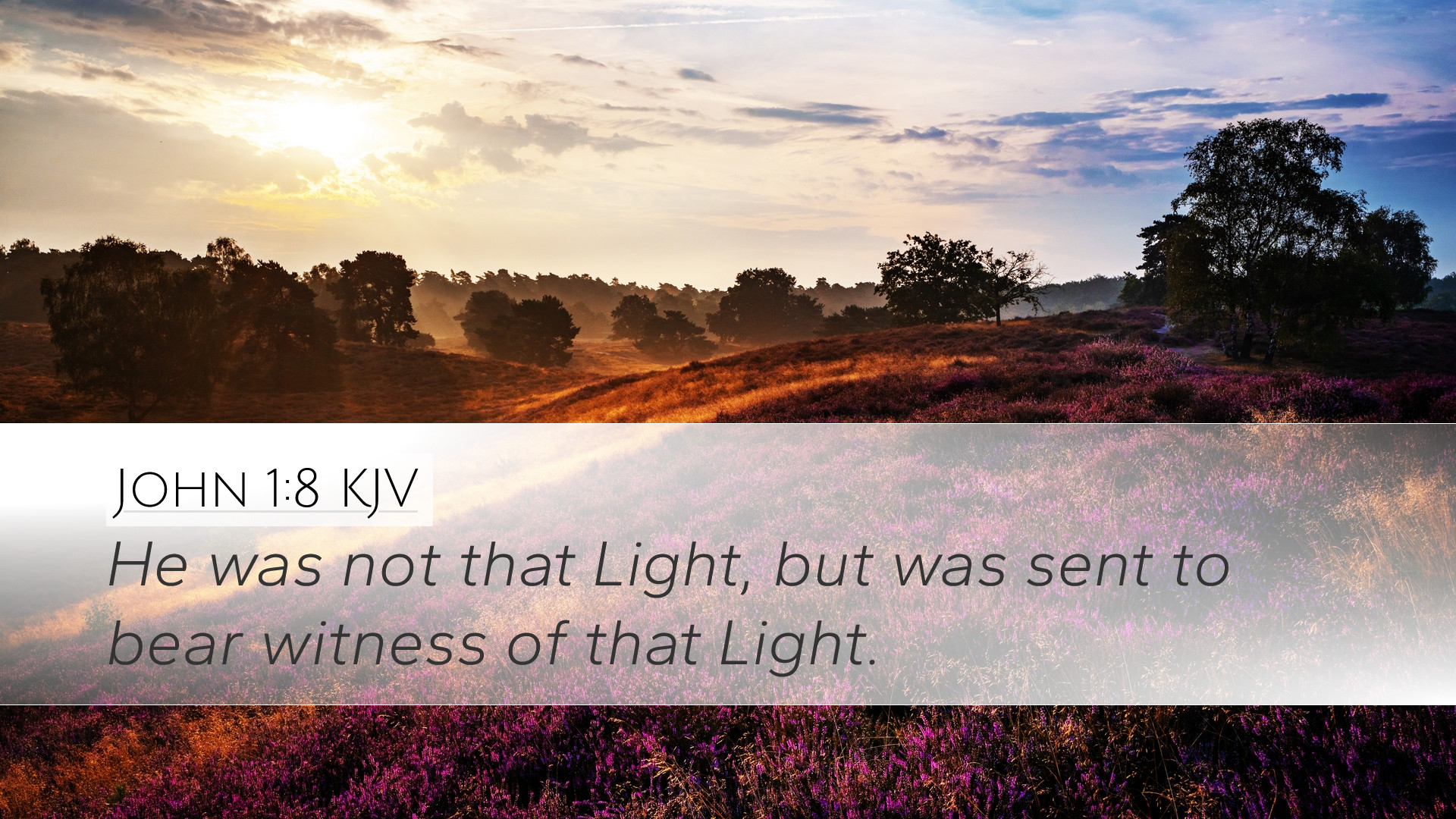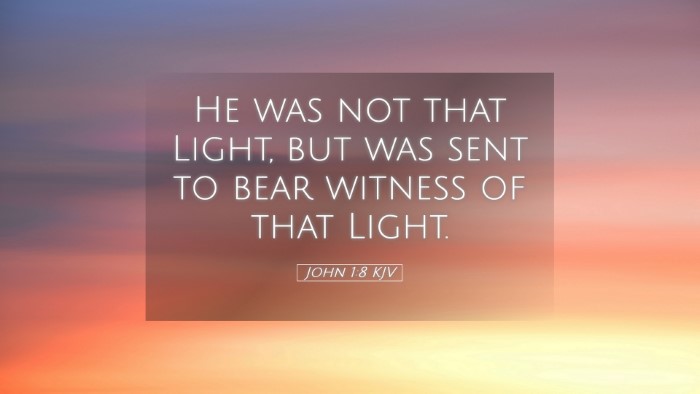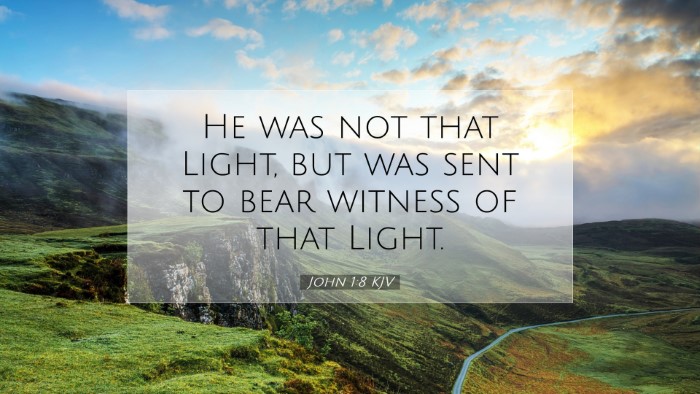Commentary on John 1:8
Verse Context: John 1:8 states, “He was not that Light, but was sent to bear witness of that Light.” This verse is part of the prologue of the Gospel of John, where the evangelist sets the stage for the ministry of Jesus Christ and introduces John the Baptist's role as a forerunner.
Understanding the Light
Matthew Henry's Commentary: Henry emphasizes the distinction between John the Baptist and Christ. He points out that John was not the source of light but a witness to it. This distinction is crucial because it establishes the nature of John's mission as preparatory rather than redemptive.
Albert Barnes' Exposition: Barnes elaborates on the term “Light,” representing divine truth and the revelation of God through Jesus Christ. John’s role fulfills an essential function—he is an emissary who guides others toward the source of true light. Hence, his purpose is to testify and direct attention to Christ.
Adam Clarke's Commentary: Clarke notes that this verse succinctly summarizes John's mission. He suggests that John's identification as a "witness" underlines the importance of testimony in faith. The act of witnessing implies a commitment to convey truth, which in this case points directly to Jesus, referred to as the Light that enlightens every person.
The Role of John the Baptist
The portrayal of John the Baptist is profound. His task was to pave the way for Jesus, marking the transition from the old covenant to the new. Understanding John's humility enhances our grasp of his significance in redemptive history.
- Witness to the Light: John’s testimony is a form of sharing the truth of Christ with others—active faith in articulating the gospel narrative.
- Emphasis on Humility: John recognized his subordinate role. He did not claim the status or authority of the Messiah, fostering an appropriate attitude of humility among his followers.
- Foreshadowing the Mission: John’s eschatological message prepared hearts for the coming of the Kingdom of God, highlighting the urgent need for repentance.
The Nature of True Testimony
From this verse, we learn about the essential nature of testimony in the Christian faith. While John was indeed great, he acknowledged that the greatness belonged to Christ, the true Light.
Matthew Henry mentions: True testimony involves pointing away from oneself and directing attention toward Christ. As believers today, we are similarly tasked to share Christ's identity and power in our witness.
Albert Barnes reflects: The effective witness is one that does not seek glory for itself, but rather elevates the one true Light—Jesus Christ—who is the embodiment of truth and salvation. In doing so, believers fulfill the call to be lights in the world, just as John bore witness to the Light.
Adam Clarke adds: There is a call to action inherent in being a witness. Every believer is charged with the responsibility to live a life that showcases the love and truth of Christ, thereby reflecting the Light in various contexts of life.
Theological Implications
John 1:8 presents significant theological implications relevant to understanding the overarching narrative of salvation history.
- Christological Focus: The verses preceding and following highlight the divinity and preexistence of Christ as the Light that illumines humanity.
- Response to Revelation: The text implies a call to respond to that Light. John's witness invites others to recognize and accept Christ as the source of spiritual illumination and life.
- The Universal Aspect: The mention of “that Light” suggests a universal mission, alluding to the breadth of the Gospel that transcends ethnic and social barriers, opening the way for all to know Christ.
Practical Application
As pastors, theologians, and students of Scripture, the lessons from John 1:8 can be applied in various contexts:
- Evangelistic Endeavors: Just as John bore witness, believers today are called to share their faith, characterizing their speech and actions to reflect Christ’s light in every community.
- Teaching and Discipleship: The importance of acknowledging Jesus as the Light should inform preaching and teaching. Educators in the faith must consistently emphasize Christ’s centrality in all discussions of theology.
- Personal Conduct: Reflecting the humility of John the Baptist, Christians are encouraged to adopt attitudes that point others toward Christ rather than drawing attention to themselves.
Conclusion
In summary, John 1:8 emphasizes John the Baptist's crucial role as a witness who prepared the way for Jesus—the true Light. This verse serves as a reminder of the importance of witness in the Christian life, calling all believers to reflect the Light of Christ in their testimony, conduct, and engagements with the world. The legacy of John's humility and commitment to testify remains a model for all who seek to follow Christ, encouraging a life that directs glory securely back to Him.


